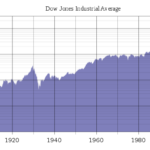Global production growth expected to be lower than consumption growth
- Oil prices dropped to their lowest since July due to a slowdown in China’s oil demand
- Chinese data are becoming more neutral than bullish for the fourth quarter
- Refinery throughputs are declining, inventories are rising, and exports are decreasing in China
- Global oil production growth is expected to be lower than global consumption growth
- OPEC+ cuts are likely to contribute to inventory draws and upward oil price pressure in early 2024
- Heightened uncertainty in the Middle East poses a risk to oil supply
- US oil demand remains weak and lower than last year
- US motorists are expected to consume less gasoline per capita next year
- Bearishness in oil is also due to the potential for increased refined production supply
- The market will enter 2024 with a lower price than anticipated and a large spare capacity buffer
Oil prices dropped to their lowest since July due to a slowdown in China’s oil demand. Chinese data for the fourth quarter are becoming more neutral than bullish, with declining refinery throughputs, rising inventories, and decreasing exports. Global oil production growth is expected to be lower than global consumption growth, and OPEC+ cuts are likely to contribute to inventory draws and upward oil price pressure in early 2024. Heightened uncertainty in the Middle East poses a risk to oil supply. In the US, oil demand remains weak and lower than last year, with motorists expected to consume less gasoline per capita next year. The bearishness in oil is also due to the potential for increased refined production supply. As a result, the market will enter 2024 with a lower price than anticipated and a large spare capacity buffer that limits upside risk in the event of some unforeseen supply disruption.
Factuality Level: 7
Factuality Justification: The article provides information on the factors contributing to the drop in oil prices, including a slowdown in China’s oil demand and declining refinery utilization. It also mentions the forecast for global oil production and the potential risks to oil supply. The article includes quotes from experts and references to data sources. However, it does not provide a comprehensive analysis of all factors influencing oil prices and does not include opposing viewpoints or alternative explanations.
Noise Level: 4
Noise Justification: The article provides some relevant information about the factors contributing to the recent drop in oil prices, such as a slowdown in China’s oil demand and declining refinery runs. However, there is also some repetitive information and the article does not provide a thorough analysis of long-term trends or antifragility.
Financial Relevance: Yes
Financial Markets Impacted: Oil markets and energy companies
Presence Of Extreme Event: No
Nature Of Extreme Event: No
Impact Rating Of The Extreme Event: No
Rating Justification: The article discusses the drop in oil prices due to a slowdown in China’s oil demand and lower exports of petroleum products. This information is relevant to financial markets, particularly oil markets and energy companies.
Public Companies: Organization of the Petroleum Exporting Countries (OPEC)
Private Companies: Energy Outlook Advisors
Key People: Anas Alhajji (Independent energy expert and managing partner at Energy Outlook Advisors), Joe DeCarolis (EIA Administrator), Troy Vincent (Senior market analyst at DTN), Hassan Nasrallah (Hezbollah chief)
Reported publicly:
 www.marketwatch.com
www.marketwatch.com 





